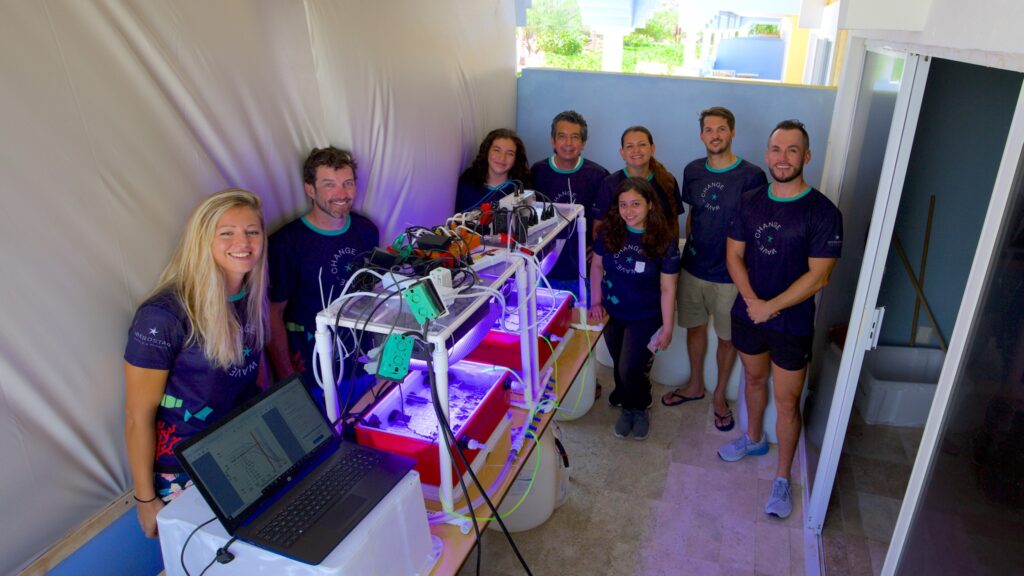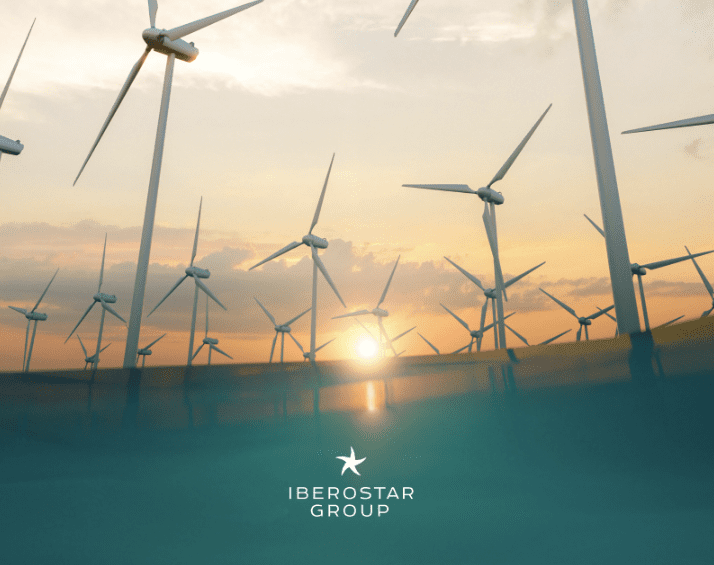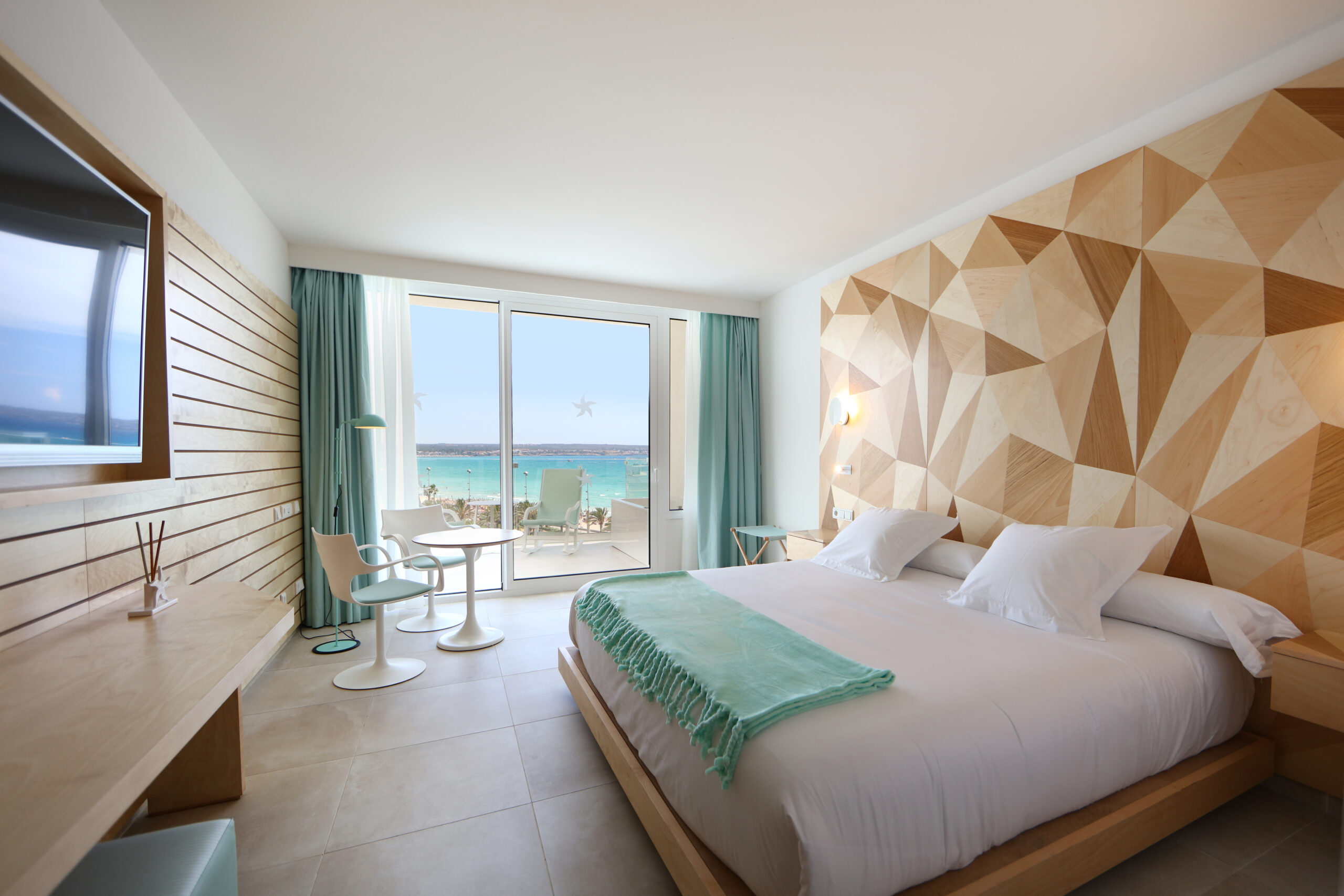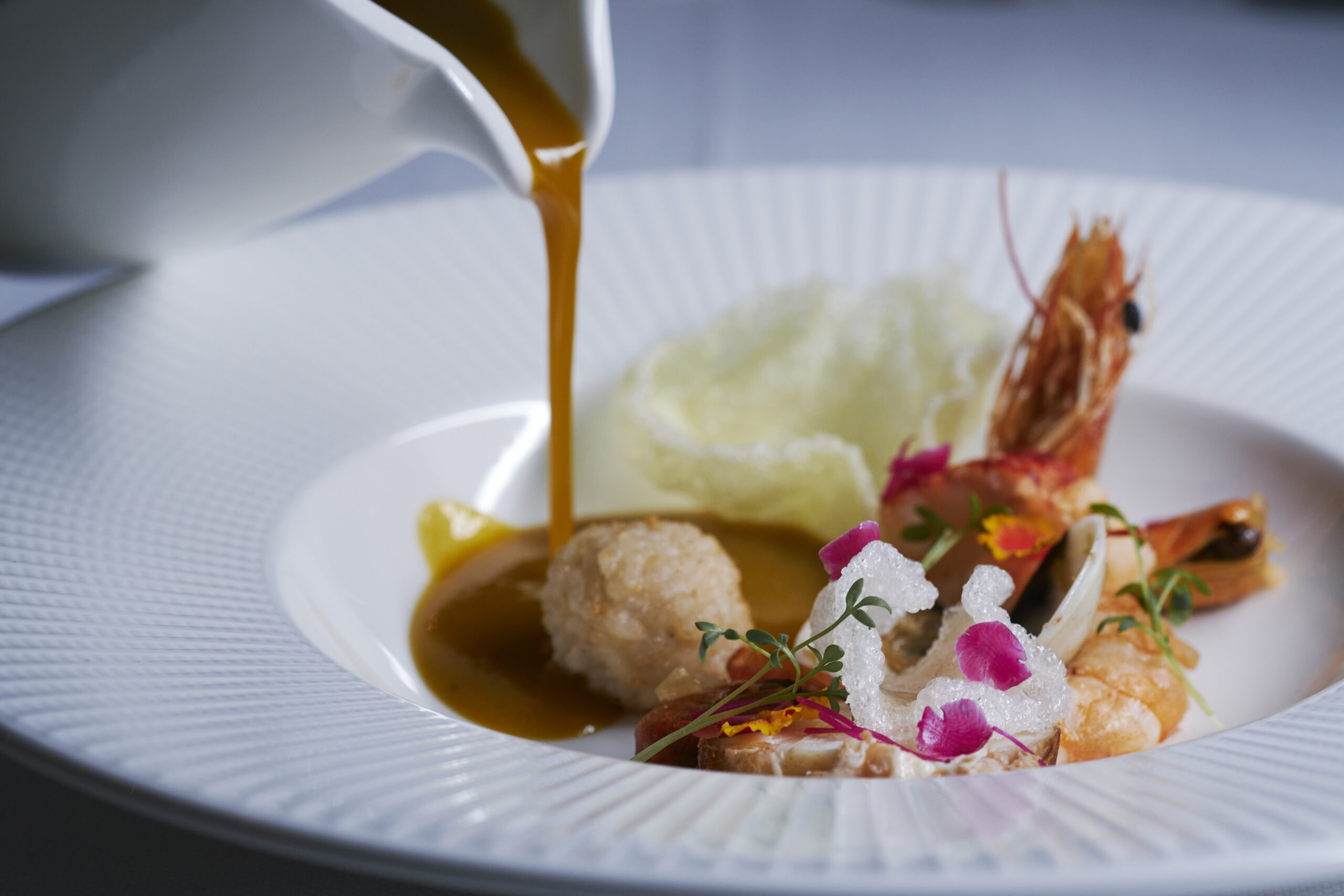With the objective of expanding research on coral thermotolerance across our reef restoration operations in the Caribbean, we were excited to collaborate with Old Dominion University. Dr. Dan Barshis and Dr. Nicolas Evensen, experts in the field, designed and built a portable lab/aquarium system to conduct heat stress studies named Coral Bleaching Automated Stress System (CBASS). Our science team learned how to assemble and operate the system and different software with Dr. Barshis and Dr. Evensen at one of our complexes in Mexico. Together we conducted an experiment to assess the thermal stress threshold of four of the main coral species in the region. After the knowledge exchange, the promising results of the experiments and the many emergent benefits that a collaboration like this implies (for instance, overcoming barriers of reef restoration such as scalability), the science team is ready to continue expanding the experiments to more species and destinations.

Dr. Dan Barshis and Dr. Nicolas Evensen, experts in the field, designed and built a portable lab/aquarium system to conduct heat stress studies named Coral Bleaching Automated Stress System (CBASS). Our science team learned how to assemble and operate the system and different software with Dr. Barshis and Dr. Evensen at one of our complexes in Mexico. Together we conducted an experiment to assess the thermal stress threshold of four of the main coral species in the region. After the knowledge exchange, the promising results of the experiments and the many emergent benefits that a collaboration like this implies (for instance, overcoming barriers of reef restoration such as scalability), the science team is ready to continue expanding the experiments to more species and destinations.
Interview with Dan Barshis, Associate Professor of Biological Sciences. Old Dominion University
1) What were your thoughts when you were introduced to partnering with a tourism organization on this project?
We were/are very excited about partnering with a tourism organization for this project. Our research has lots of direct applications to the coral restoration field, so partnering directly with an organization involved in applied coral restoration is something we have been interested in for a while. It is also a unique experience for us to step outside of academic research and into the private sector, so we are enjoying learning about how things work in the tourism sector.
2) Why is your portable lab so unique, and what are its benefits?
The main advantage of the portable CBASS lab is that it is so portable. Controlled temperature/bleaching experiments usually require very extensive and expensive seawater research systems which are not found in most coral reef locations. The CBASS leverages lower cost new technology and a lot of past testing to create a platform that can be used most anywhere in the world. This has many advantages for opening up detailed coral bleaching experiments to new locations and coral reef researchers. The other advantage of the system is that it is modular, so it can be adapted to different needs and locations. The same components can be used for larger tanks if a more stationary system is needed for longer-term experiments. Lastly, we have trailed the system and approach in many different locations, oceans, and across multiple coral species, so another advantage is that a similar approach is being used by a number of different research groups, increasing the potential for cross-comparison and collaboration.
3) How will this work help research on thermal resilient corals in the face of climate change?
This work is really geared towards identifying the species and individuals best adapted to survive thermal stress and ocean warming. By detecting the most resilient species and individuals, we can then use this information to inform/develop proactive management strategies and restoration practices. For instance, thermally resilient species/individuals/populations can be propagated in nurseries, moved to cooler water so they survive future stress events, and even selectively bred with each other to generate thermally tolerant larvae.
4) How do you think the private industry can help push science forward?
The main thing the private industry brings to the table is scaling up and testing applied research approaches. Individual research groups can test out specific technologies and come up with potential applications, but the industry is really the stakeholder who can implement/test these approaches at a relevant scale. Also, the restoration practitioners are the ones who will be implementing these methods and technologies, so it is critical to have their involvement and feedback to help shape the future direction of the scientific research.






